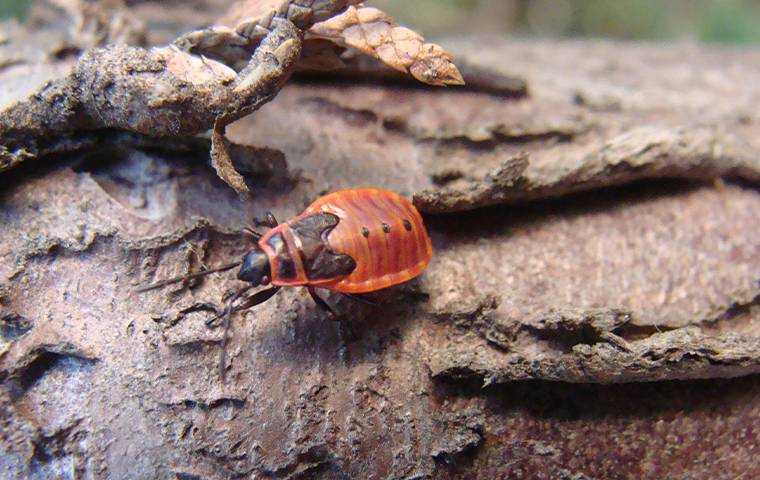Learn More About Chinch Bugs In Bradenton, FL

Chinch bugs are one of those pests that aren't your problem until they are. If you don't think about them before they invade your Bradenton lawn, you could be in for a rough summer.
Frequently Asked Questions About Chinch Bugs
What are chinch bugs?
Chinch bugs are small insects that feed on plant matter. Adults of this species overwinter in any warm shelter that they can find. In the spring, they emerge to start their breeding season, and this is where your problems with this pest begin. Once the eggs laid by the females begin hatching in your lawn, the tiny chinch bug larvae will start sucking the sap out of your grass. This kills the leaves and stems of the grass and leaves big brown patches in your lawn.
Are chinch bugs dangerous?
Chinch bugs in your lawn are not dangerous to you. They aren’t known to spread any diseases, and they cannot sting or bite. This means if you actually see adult chinch bugs, you have nothing to be afraid of. However, the same cannot be said for your lawn.
Female chinch bugs can lay hundreds of eggs at a time. This means if you have hundreds of chinch bug females laying eggs in your grass, you’ll soon have thousands upon thousands of larvae all sucking the sap out of your grass. If you don't take care of this problem, chinch bug damage can leave your entire lawn decimated in just a few weeks.
Why do I have a chinch bug problem?
Chinch bugs will always be attracted to healthy grass with lots of sap for their offspring to feed on. If you’ve had a healthy lawn for years and never had this problem, your infestation may just be a case of bad luck. The weather may also have something to do with it. Most of the time, chinch bug numbers are kept down by the predatory insects that feed on them. However, a drought or hard winter can sometimes reduce the number of these predators, which allows chinch bugs to thrive.
If your home has a particularly warm exterior (think a large, southern-facing wall or a big, sunny driveway), chinch bugs may also be attracted to your property because they want to overwinter near your warm home.
Where will I find chinch bugs?
If you have a chinch bug infestation, you'll mostly find these pests out in your lawn. They are particularly fond of warm-weather species of grass, such as Kentucky bluegrass and bermudagrass. In the spring, you may notice brown or yellow patches of grass spreading from the warmer parts of your lawn, such as areas closest to your foundation or patios, which radiate warmth through the winter.
How do I get rid of chinch bugs?
Unfortunately, chinch bug treatment isn’t all that easy once you have an infestation. Once these little bugs are sucking the life out of your grass, there are usually so many of them that you can’t use store-bought treatment products like granules or sprays to deal with them.
If you have chinch bugs, the best thing you can do is contact the pest experts here at Westfall's Lawn and Pest. We might have rodents in our name, but all pests are our game. Our team has access to professional tools and techniques that can help eliminate the chinch bugs in your yard and make your grass healthy again. So don't wait until your whole lawn is just one big brown spot. Call us as soon as you notice signs of chinch bugs.
How can I prevent chinch bugs in the future?
The good news is that chinch bug control is a whole lot easier if you get started on it before you get an infestation. A great way to prevent chinch bugs is to cultivate a healthy lawn with a healthy predator population. For instance, encouraging a healthy population of ladybugs in your yard can help protect it from a host of lawn-destroying insects without putting you at risk for an infestation of potentially dangerous chinch bug predators, like wasps and spiders.
Keeping your grass healthy can also help prevent chinch bugs. To do this:
- Water your lawn often, as chinch bugs do not like wet grass.
- Keep your grass at the maximum recommended height.
- Aerate your soil in the spring.
- Avoid over-fertilizing because excess nitrogen may attract chinch bugs.
Remember, if even these measures do not protect your lawn from these destructive pests, the experts here at Westfall's Lawn and Pest are just a click or call away!



